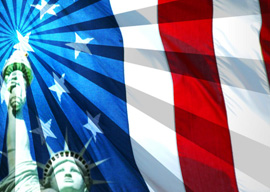
February 16, 2011

In the last few days I”ve run across two authoritative statements by neocon journalists which provide a new American “Freedom Doctrine for Arab democracy.” One statement is by Pod the Younger in the New York Post summoning Americans back to the Truman Administration’s pro-democracy policy. In Europe after World War II, it seems, American stewardship kept Europe from going communist.
Pod is referring to the arduous string-pulling that the US engaged in after the Second World War to keep European countries with large communist parties, particularly France and Italy, from moving into the Soviet Bloc. But those countries had communist parties that rarely received above a quarter of the popular vote. It is also doubtful that these places would have fallen behind the Iron Curtain even if the US didn”t bankroll what quickly became corrupt blocs such as Italy’s Christian Democrats. In the German case, with due respect to Pod and other neocons, there were pre-Nazi parliamentary institutions dating back to the early nineteenth century. Germany always had a substantial, well-educated middle class and very industrious workers. Unlike the Egyptians, almost all Germans were literate and most had marketable skills. Comparing the Germans, even after World War II, to most of the Arab world today is almost infantile. Would Pod suggest that we export our labor unions to foreign countries to teach others about “democracy”? That may not be a bad idea, provided we could move our unions out of this country into North Africa.
Krauthammer exhibits more mental energy than Pod in framing his detailed endorsement of global democracy. He appeals to the Truman Doctrine, the third reference point in neocon memory after the 1938 Munich Agreement and Israel’s founding in 1948. The US is urged to “use its influence to help democrats everywhere throw off dictatorial rule.” We must also intervene to make sure that we have true democracy when we foster (or incite) revolution.
It is furthermore in our government’s interest to protect “these new democracies…against totalitarians, foreign and domestic.” Just as during the Cold War’s early phase when we kept communist parties from entering European governments, we must now take action to keep totalitarian parties, meaning here Egypt’s Muslim Brotherhood, “out of power.” Krauthammer does not imagine that the policies he proposes can be implemented without extensive American involvement. But he reminds us: “A freedom doctrine is a freedom agenda given direction by guiding principles. Truman did it. So can we.”
Is what Krauthammer proposes really self-rule for other countries, or is it acceptance of a permanent American suzerainty? He seems far less willing to allow Egypt to go its own way than to have Egyptians live according to his wishes. Why not describe his political program as having the US government force the rest of the world into compliance with the neocon vision of a good society?
If Krauthammer is universally concerned with freedom, why doesn”t he protest the continual infringement on free speech and inquiry in Western “democracies” in the name of fighting hate speech and unkind thoughts? In France one can now be arrested and thrown in jail for questioning the “Turkish genocide.” The same is true throughout the EU for those who challenge the governmentally recognized account of the Holocaust. It is also quite possibly a punishable crime in France to reissue Jean Raspail’s Le Camp des Saints. According to Le Figaro Magazine, the novel’s 85-year-old author will have courts prosecuting him and his publisher on 87 counts as soon as his reprinted work hits the bookstands. In this novel, first published 35 years ago, Raspail depicts Indians fleeing en masse in a boat to France. Since this voyage is shown in a less-than-complimentary fashion, the author is subject to judicial prosecution for having insulted Third World sensibilities.
Raspail told Le Figaro that freedom’s primary threat isn”t “Big Brother,” it’s “Big Other””the silent shaming collective force of those who aren”t native Europeans. He points out that there are now multiple laws in his country, mostly passed by French communists and socialists, criminalizing ungracious speech against certain (particularly non-Christian and usually nonwhite) minorities.